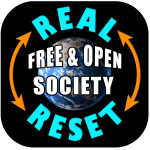Christopher Eric Hitchens (13 April 1949 – 15 December 2011) was a British-American author and journalist who wrote or edited over 30 books (including five essay collections) on culture, politics, and literature. Hitchens originally described himself as a democratic socialist, and he was a member of various socialist organisations throughout his life, including the International Socialists. Hitchens eventually stopped describing himself as a socialist, but he continued to identify as a Marxist, supporting Marx’s materialist conception of history. Hitchens was very critical of aspects of American foreign policy, such as American involvement in war crimes in Vietnam, Chile, and East Timor. However, he also supported the United States in the Kosovo War, the Afghanistan War, the Iraq War and other military interventions.
Hitchens described himself as an anti-theist, who saw all religions as false, harmful and authoritarian. He argued for free expression and scientific discovery, and asserted that they were superior to religion as an ethical code of conduct for human civilisation. He also advocated separation of church and state. The dictum “What can be asserted without evidence can also be dismissed without evidence” has become known as Hitchens’s razor.
Born and educated in England, Hitchens worked as a journalist with the New Statesman magazine in London in the 1970s after leaving Oxford. In the early 1980s he emigrated to America and wrote for The Nation and Vanity Fair. Hitchens died from complications related to esophageal cancer in December 2011.
Hitchens attended two independent schools—Mount House School, Tavistock, Devon, from the age of eight, and the Leys School in Cambridge.[42] Hitchens was admitted to Balliol College, Oxford in 1967 where he read Philosophy, Politics and Economics and was tutored by Steven Lukes and Anthony Kenny. He graduated in 1970 with a third-class degree.[34][43] In his adolescence, he was “bowled over” by Richard Llewellyn’s How Green Was My Valley, Arthur Koestler’s Darkness at Noon, Fyodor Dostoyevsky’s Crime and Punishment, R. H. Tawney’s critique on Religion and the Rise of Capitalism, and the works of George Orwell.[36] In 1968, he took part in the TV quiz show University Challenge.[44][45]
In 2009 Hitchens was listed by Forbes magazine as one of the “25 most influential liberals in the U.S. media”.[114] The same article noted, however, that he would “likely be aghast to find himself on this list”, as it reduces his self-styled radicalism to mere liberalism. Hitchens’s political perspectives also appear in his wide-ranging writings, which include many dialogues.[115] He said of Ayn Rand’s Objectivism, “I have always found it quaint, and rather touching, that there is a movement in the US that thinks Americans are not yet selfish enough.”[116]
While Hitchens supported Israel’s right to exist, he was critical of the Israeli government’s handling of the Israeli–Palestinian conflict. Having long described himself as a socialist and a Marxist, Hitchens began his break from the established political left after what he called the “tepid reaction” of the Western left to the controversy over The Satanic Verses, followed by what he saw as the left’s embrace of Bill Clinton and the anti-war movement’s opposition to NATO intervention in Bosnia and Herzegovina in the 1990s. He later became a so-called liberal hawk and supported the War on Terror, but he had some reservations, such as his characterisation of waterboarding as torture after voluntarily undergoing the procedure. In January 2006, he joined four other individuals and four organisations, including the ACLU and Greenpeace, as plaintiffs in a lawsuit, ACLU v. NSA, challenging Bush’s NSA warrantless surveillance; the lawsuit was filed with the ACLU.
Hitchens was an avid critic of President Slobodan Milošević of Serbia and other Serbian politicians of the 1990s. He called Milošević a “fascist” and a “nazi” after the Bosnian genocide and ethnic cleansing of Albanians. Hitchens often accused the Serbian government of committing numerous war crimes during the Yugoslav Wars. He denounced people like Noam Chomsky and Edward S. Herman, who criticized the NATO intervention there. Hitchens also criticized Croatian president Franjo Tuđman and the policies of the Croatian government, which he saw as reviving “Ustashe formations”.
In terms of abortion, Hitchens agreed that an unborn child was a human life. However he opposed overturning Roe v. Wade instead he hoped that science would create new ways to handle unwanted pregnancies. He supported same-sex marriage.
https://en.wikipedia.org/wiki/Christopher_Hitchens
Image: meesh from washington dc, CC BY 2.0 https://creativecommons.org/licenses/by/2.0, via Wikimedia Commons
source
